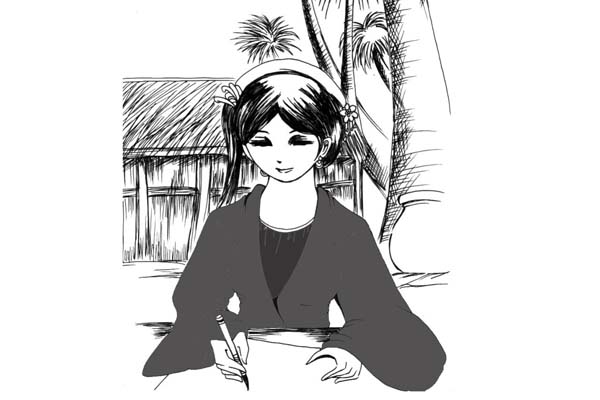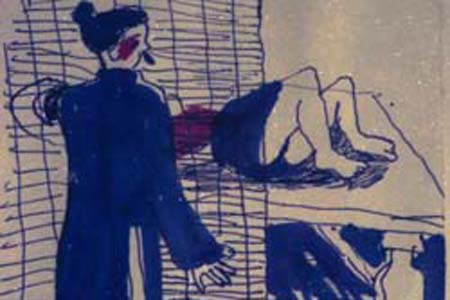Ho Xuan Huong is feminine not only in her fight for woman's rights against interdictions, taboos and injustices, but also in her extreme sensitivity.
Orphaned when a young child, a concubine in spite of her cleverness and her literary talent, she fought courageously, but she often suffered from her solitude. A suffering concealed by irony and that mischievous laughter, which some take for her nature whereas it is perhaps an attitude allowing her to deflect criticism more easily.

Xuan Dieu quotes for us ’three poems which give a glimpse of this solitude and a kind of nostalgia for a happiness which has been denied to her'.
The first one gives expression to the woman's rebellion against the conditions compelling her to remain passive.
Whether he who holds the helm
Were willing or not to board,
Let she who hoists the sail
Be able to navigate freely.
In the second poem, Ho Xuan Huong gives us a glimpse of her lassitude and sadness:
In the dead of night night watchers drums resound.
Tufts of moss on the ground
On the horizon, some cliffs
Rise up to the sky.
I can no longer endure the flight of springtime
I yearn for love before becoming too old.
The third poem is certainly the most beautiful and meaningful.
Noisy cock’s crows rise from far poultry yards
Spiteful, I awake and look about me,
I don’t shake my sadness rattle, and yet it resounds
I don’t ring my sorrow’s bell, so why does it chime so loud?
Their resonance only adds to my pain
I curse my fate which has thus abandoned me.
Men of virtue and you, scholars, where are you?
Must I admit that I have already reached old age?
With these three poems, we grasp Ho Xuan Huong’s extreme feminity better and this rare sensitivity which is one of her characteristics. Better than any other poet, she gives pure expression to her most secret sensations and her innermost feelings.



